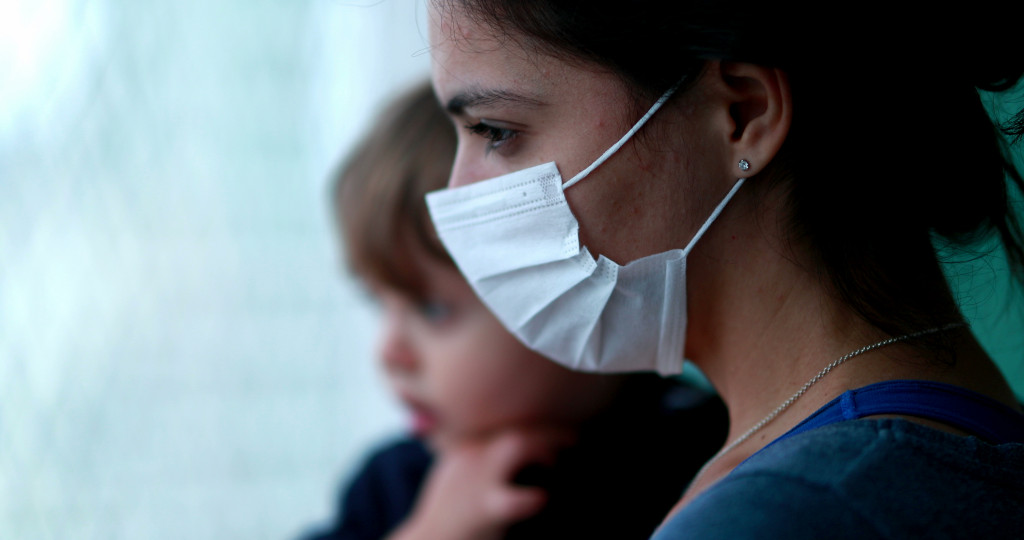The flu is a virus that can cause fever, body aches, headaches, and fatigue. It can be pretty unpleasant, and it can even be life-threatening in some cases.
This blog post will discuss tips on preventing and treating the flu. We hope that this information will help you prepare when you are sick.
1. See a Doctor
If you have flu-like symptoms, such as fever, body aches, and headaches, go to an urgent care clinic and see a doctor. Only they can determine if you have the flu.
You may need treatment with antiviral medicines if your infection is caused by influenza virus type A (H) or B strain viruses. Your doctor can also recommend other medications more appropriate for your condition.
Please note that antibiotics do not work against viral infections such as flu since they target bacteria and only kill them off in large doses, so they cannot reproduce anymore. Taking them, especially without doctor’s orders, can only make you prone to antibiotic resistance.
Most people recover from the flu without problems, but some may develop complications requiring treatment and hospitalization.
People at high risk for complications include children younger than five years old, adults 65 years or older, pregnant women (and up to two weeks after giving birth), residents of long-term care facilities such as nursing homes who are 65 years or older, or younger than 18 with certain medical conditions like asthma.
If you’re in one of these groups and develop symptoms like fever, coughs (especially if it gets worse over time), and shortness of breath when doing everyday activities, seek immediate medical attention. If untreated, this could lead to pneumonia.
2. Get Plenty of Rest
It becomes vital to get plenty of rest when fighting the flu. It will help your body fight off the virus.
Take a break from work, school, and other activities until you feel better. Try to sleep as much as possible – at least eight hours each night.
If you have a fever, keep it down by using over-the-counter medication such as ibuprofen or acetaminophen (Tylenol). Please consult with your doctor before taking any medication. Some medicines may not be appropriate for people who are pregnant or have certain health conditions.
Resting also includes avoiding any strenuous activity. This means no trips to the gym, running errands, or doing housework. It might be a good idea to have someone else do these for you until you feel better.
When resting at home, keep your environment cool and comfortable. Drink plenty of fluids (but avoid caffeine and alcohol), eat light meals that are easy to digest, use saline nasal drops or sprays if needed, or gargle with warm salt water a few times a day.
3. Stay Away from the Crowd

Avoid any contact with people while you are still sick. Otherwise, you will pass on the virus to them.
If you have to be around other people, make sure you wash your hands frequently and use a hand sanitizer. Avoid touching your face, especially your nose and mouth. Cover your nose and mouth when sneezing or coughing and dispose of used tissues properly.
Keep in mind that the virus can live on surfaces for up to two days. Clean all common areas such as countertops, doorknobs, phones, keyboards, tablets, etc., with a disinfectant cleaner.
Finally, if you are sick, stay home. You will likely feel better in a few days and can return to your normal activities once you no longer have a fever (without the use of medication) or any other flu symptoms.
4. Wear a Mask
When you have to go out in public, wear a mask. It will protect others from catching the virus from you.
Some masks are better than others when protecting against viruses and bacteria. A surgical or medical mask is recommended for sick people but must be around other people (such as caretakers). N95 respirators can filter out small particles that might get into your nose or mouth.
5. Eat Well
When you have the flu, your body works hard to fight off the virus. This takes a lot of energy, so you must eat well.
Aim to eat plenty of fruits and vegetables, whole grains, lean proteins, and low-fat dairy products. Avoid processed foods and sugary drinks. Drink lots of fluids (but avoid caffeine and alcohol), especially water or broth-based soups.
If you don’t feel like eating solid food, try drinking smoothies or shakes made with protein powder, yogurt, fruit juice, or milk. Get plenty of rest before trying to eat a big meal to help your body digest food properly.
The flu can be a severe illness. It’s essential to know the symptoms and how to deal with them. If you think you might have the flu, see your doctor as soon as possible for treatment.
And remember to get plenty of rest, stay away from people, cover your nose and mouth when sneezing or coughing, and wear a mask when necessary. By following these tips, you can help reduce the severity of the virus and speed up your recovery time. Stay healthy!
